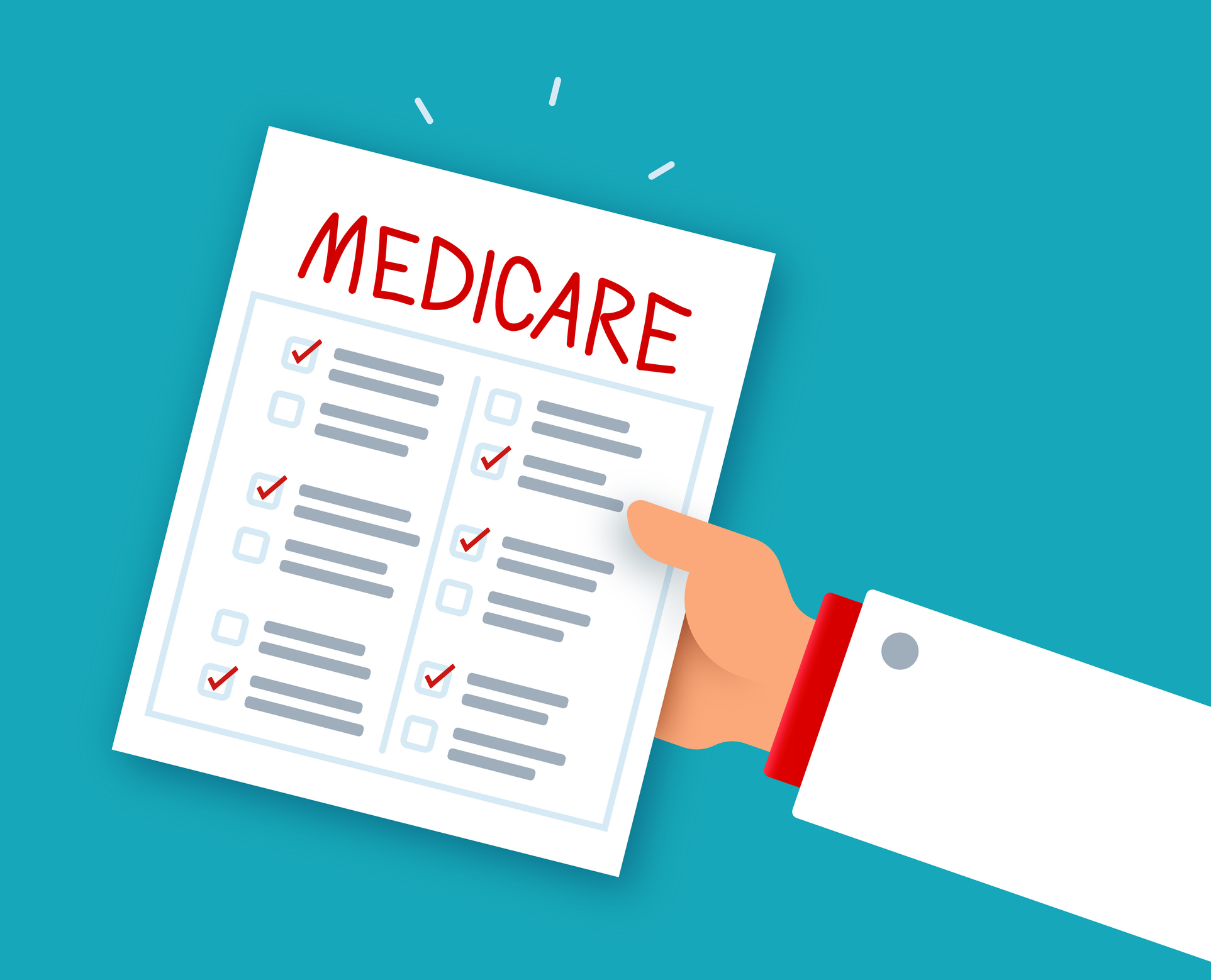Buying Long-Term-Care Coverage for a Parent
It's a smart move. But do it while your parents are still relatively healthy.


Profit and prosper with the best of Kiplinger's advice on investing, taxes, retirement, personal finance and much more. Delivered daily. Enter your email in the box and click Sign Me Up.
You are now subscribed
Your newsletter sign-up was successful
Want to add more newsletters?

Delivered daily
Kiplinger Today
Profit and prosper with the best of Kiplinger's advice on investing, taxes, retirement, personal finance and much more delivered daily. Smart money moves start here.

Sent five days a week
Kiplinger A Step Ahead
Get practical help to make better financial decisions in your everyday life, from spending to savings on top deals.

Delivered daily
Kiplinger Closing Bell
Get today's biggest financial and investing headlines delivered to your inbox every day the U.S. stock market is open.

Sent twice a week
Kiplinger Adviser Intel
Financial pros across the country share best practices and fresh tactics to preserve and grow your wealth.

Delivered weekly
Kiplinger Tax Tips
Trim your federal and state tax bills with practical tax-planning and tax-cutting strategies.

Sent twice a week
Kiplinger Retirement Tips
Your twice-a-week guide to planning and enjoying a financially secure and richly rewarding retirement

Sent bimonthly.
Kiplinger Adviser Angle
Insights for advisers, wealth managers and other financial professionals.

Sent twice a week
Kiplinger Investing Weekly
Your twice-a-week roundup of promising stocks, funds, companies and industries you should consider, ones you should avoid, and why.

Sent weekly for six weeks
Kiplinger Invest for Retirement
Your step-by-step six-part series on how to invest for retirement, from devising a successful strategy to exactly which investments to choose.
My father is 68, relatively healthy and living alone. He has very little savings and works full-time. He can't afford to buy long-term-care insurance. If something happens to him, it's likely that my family and I will have to help pay for his care. Should I buy long-term-care insurance for him?
Buying the insurance is a smart move: The average cost of a private room in a nursing home tops $90,000 a year, and care in your home can be even more — making it highly unlikely your father could handle the expenses on his own. If he has very little income or savings (see Medicaid.gov for details), he may qualify for Medicaid, but his care options would be limited. Most states cover custodial care (the care needed by Alzheimer's patients and others with long-term-care needs) only in certain Medicaid-eligible nursing homes, although a few have special programs that cover care at home. For more information about Medicaid coverage for custodial care, see Does Insurance Cover Alzheimer's Care?
Long-term-care insurance can help pay for many more care options than Medicaid, including care at home, in an assisted-living facility or in a wider variety of nursing homes. You can cover your father's premiums, but he'll need to sign the application and health care releases himself. The cost will depend on your dad's health and the terms of the policy. A Genworth policy for a relatively healthy 68-year-old man, including a $3,500 monthly benefit, a three-year benefit period, 3% compound inflation protection and a 90-day waiting period, would cost about $3,200 per year, says Mike Ashley, of Senior Benefits Consultants in Prairie Village, Kan. A policy with the same terms that pays $4,000 a month runs about $3,700 a year.
From just $107.88 $24.99 for Kiplinger Personal Finance
Become a smarter, better informed investor. Subscribe from just $107.88 $24.99, plus get up to 4 Special Issues

Sign up for Kiplinger’s Free Newsletters
Profit and prosper with the best of expert advice on investing, taxes, retirement, personal finance and more - straight to your e-mail.
Profit and prosper with the best of expert advice - straight to your e-mail.
If you are interested in getting long-term-care coverage for your father, don't wait too long. Long-term care insurers are making it more difficult to qualify for coverage, and Ashley says that most people who are interested in buying a policy for their parents wait until their health is too bad to qualify for coverage.
For more information about long-term care insurance, see Navigate a Course for Long-Term Care and A New Strategy for Paying for Long-Term Care and our Long-Term Care Special Report. For information about coverage options from families who are helping relatives with their long-term care needs, see Planning for Alzheimer's and Alzheimer's: Get Your Finances in Order.
Profit and prosper with the best of Kiplinger's advice on investing, taxes, retirement, personal finance and much more. Delivered daily. Enter your email in the box and click Sign Me Up.

As the "Ask Kim" columnist for Kiplinger's Personal Finance, Lankford receives hundreds of personal finance questions from readers every month. She is the author of Rescue Your Financial Life (McGraw-Hill, 2003), The Insurance Maze: How You Can Save Money on Insurance -- and Still Get the Coverage You Need (Kaplan, 2006), Kiplinger's Ask Kim for Money Smart Solutions (Kaplan, 2007) and The Kiplinger/BBB Personal Finance Guide for Military Families. She is frequently featured as a financial expert on television and radio, including NBC's Today Show, CNN, CNBC and National Public Radio.
-
 The New Reality for Entertainment
The New Reality for EntertainmentThe Kiplinger Letter The entertainment industry is shifting as movie and TV companies face fierce competition, fight for attention and cope with artificial intelligence.
-
 Stocks Sink With Alphabet, Bitcoin: Stock Market Today
Stocks Sink With Alphabet, Bitcoin: Stock Market TodayA dismal round of jobs data did little to lift sentiment on Thursday.
-
 Betting on Super Bowl 2026? New IRS Tax Changes Could Cost You
Betting on Super Bowl 2026? New IRS Tax Changes Could Cost YouTaxable Income When Super Bowl LX hype fades, some fans may be surprised to learn that sports betting tax rules have shifted.
-
 I Tried a New AI Tool to Answer One of the Hardest Retirement Questions We All Face
I Tried a New AI Tool to Answer One of the Hardest Retirement Questions We All FaceAs a veteran financial journalist, I tried the free AI-powered platform, Waterlily. Here's how it provided fresh insights into my retirement plan — and might help you.
-
 What to Know About New Medicaid Cuts: Is Your Local Hospital Closing Soon?
What to Know About New Medicaid Cuts: Is Your Local Hospital Closing Soon?Tax Policy Trump’s ‘One Big Beautiful Bill’ is now law, and rural hospitals across the U.S. are on the chopping block.
-
 Mom Needs a Nursing Home. Should I Spend Down Her Assets So She Qualifies for Medicaid?
Mom Needs a Nursing Home. Should I Spend Down Her Assets So She Qualifies for Medicaid?We asked expert financial advisers for their advice.
-
 Trump’s Tax Cut Risks Your SNAP, Medicaid Benefits
Trump’s Tax Cut Risks Your SNAP, Medicaid BenefitsTax Cuts The GOP budget blueprint could slash lifesaving programs for millions of U.S. households.
-
 Medicaid Managed Care Groups Under Congressional Investigation
Medicaid Managed Care Groups Under Congressional InvestigationLawmakers question Medicaid MCOs over their high rates of prior authorization denials.
-
 Hospitals Say Increased Medicare Reimbursement Is Not Enough: Kiplinger Economic Forecasts
Hospitals Say Increased Medicare Reimbursement Is Not Enough: Kiplinger Economic ForecastsEconomic Forecasts Medicare will bump up hospital reimbursements by 3.1% in 2024, but the industry says it's not enough as it comes off its worst financial year of the pandemic.
-
 More Weight-Loss Drugs, Like Ozempic, are in the Works: Kiplinger Economic Forecasts
More Weight-Loss Drugs, Like Ozempic, are in the Works: Kiplinger Economic ForecastsEconomic Forecasts Pharmaceutical companies are developing more weight-loss drugs similar to Ozempic, but these injectables are still expensive.
-
 Amazon launches RxPass — its new subscription service for medication
Amazon launches RxPass — its new subscription service for medicationAmazon's new program, RxPass, lets Prime members ship prescription medications to their homes for just $5 a month.